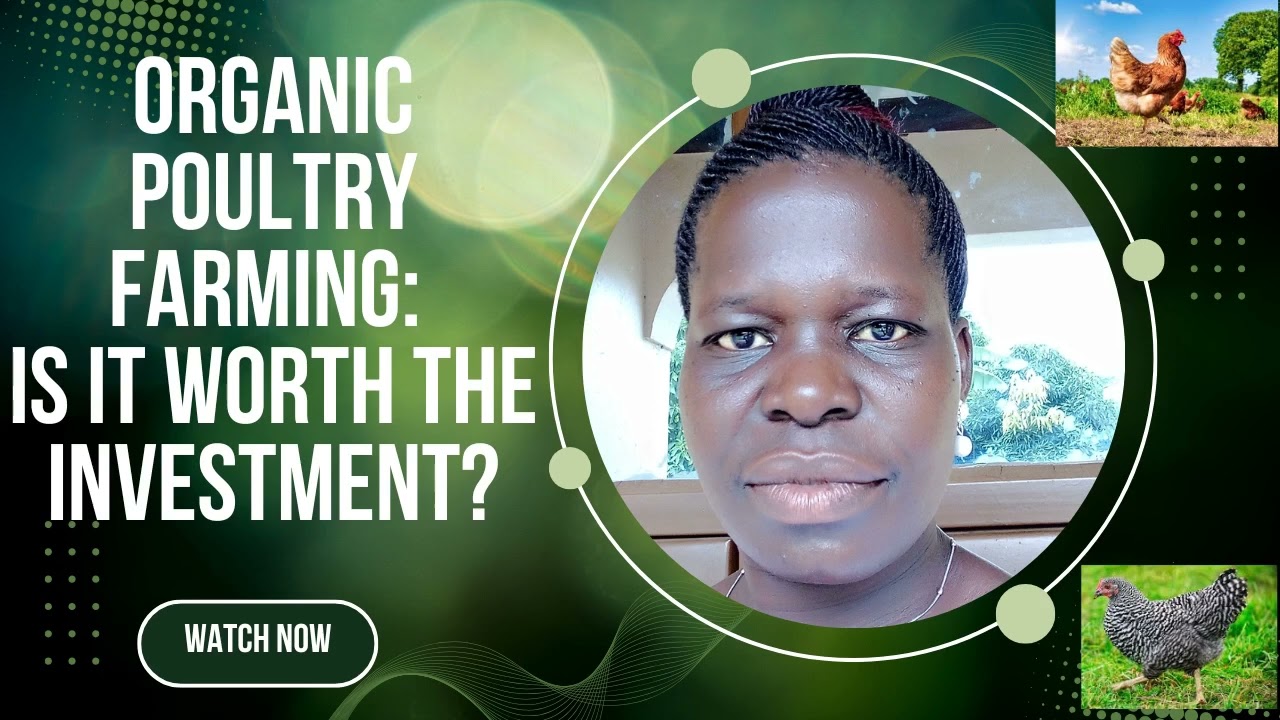Organic poultry farming is it worth the investment welcome to our channel in today,’s, video, organic, poultry farming? Is it worth for your investment? We dive into the world of organic poultry farming, exploring its benefits, challenges and financial viability, whether you are considering transitioning to organic methods or are curious about the viability about the potential returns. This comprehensive guide will provide you with the insights needed to make informed decisions.
Stay with us as we uncover how organic poultry farming can lead to increased production, profitability and long term wealth segment, number one: understanding, organic poultry farming.
We begin by defining organic poultry farming which emphasizes natural methods, animal welfare and sustainability.
According to the to the United States Department of Agriculture, organic poultry must have access to the outdoors, be fed 100 organic feed and be free from synthetic hormones and antibiotics.
The key points here are: animal welfare chickens are provided with outdoor access, promoting natural behaviors and improving.
Overall health, looking at at at feed standards, use of organic feed free from GMOs and synthetic additives ensures a healthier product and then health practices prohibit prohibition of antibiotics and synthetic hormones aligns with consumer demand for natural products, segment number two financial viability and profitability transitioning to Organic poultry farming involves initiatives or involves initial investments, but can lead to higher profits.
A study comparing organic and conventional broiler production found that, while organic meat costs 70 to 8 to 86 more to produce, it can be sold at twice the price resulting in a net income of 0 5 per kilogram, which is 180 higher than conventional methods.
The key points here are cost analysis.
Higher production costs are offset by premium prices, market demand, consumers are willing to pay more for organic, ethically, produced meat and then long term gains sustainable practices can lead to increased demand and profitability over time segment.
Number three best practices for organic poultry farming implementing best practices is crucial for success. This includes providing adequate outdoor space, maintaining low stock, dens low stocking density and ensuring high quality organic feed.
Additionally, establishing preventive health care measures and adhering to organic certification.
Certification standards are also vital.
Key points here are outdoor access, whereby you ensure compliance with organic standards and promote animal welfare, stalking density.
You need lower densities, to reduce stress and diseases, aligning with organic principles and then feed quality, use organic feeds that support health and meet certification requirements.
Segment number four: overcoming challenges, organic poultry farming presents challenges such as higher feed costs, labor intensity and the need for certification.
For instance, financial performance for a small, organic broiler flock showed net cash income ranging from 5 116 to 6 616 in the first year, highlighting both the potential and the challenges involved.
Key points here includes cost management whereby you need strategic planning to handle higher initial expenses.

Looking at labor requirements, there is increased labor which may need for more management and satisf and and certification processes.
There is also market fluctuation. Staying informed about market trends, helps in pricing and demand forecasting segment, number five maximizing production and profits to enhance production and profitability.
You need to to diversify income streams, consider offering value added products like organic eggs or processed meats, use direct marketing, engage with the consumers through farmers, markets or subscription models to capture premium prices and then do continuous education stay updated with organic farming techniques and market trends.
To adapt and thrive, therefore, organic poultry farming offers a promising avenue for those seeking sustainable and profitable agricultural practices, while the isend, while the initial investment may be higher, the potential for increased income through premium pricing and a growing market demand for organic products makes it a Worthwhile endeavor, by adhering to best practices, understanding the financial aspects and overcoming inherent challenges.
Farmers can reap the benefits of organic poultry farming.
Thank you for joining us in exploring the potential of organic poultry farming.
We hope this video has provided valable valuable insights to help you make informed decisions about your farming ventures.
Remember.
Success in organic farming requires dedication, knowledge and commitment to sustainable practices.
If you found this video informative, please give it a thumbs up subscribe to our channel.
For more content on sustainable farming and share your thoughts or questions in the comments section below, we would love to hear about your experiences or plans in organic poultry farming. Stay tuned for more videos and thank you for being part of our community for further insights and inspiration on excellence and maximizing production and profits on poultry farming.
Consider subscribing to our channel again for instant notification about our latest videos and watching more of our videos shown in this on the screen here and in the link provided in the description below.
Remember.
To leave your comments, and in case you want us to make a video or discussions on your topic on any topic of your interest, write your request on the comment section below, and we shall be happy to handle that.
Thank you for watching be blessed.
.
Discover more from NatureZen Market
Subscribe to get the latest posts sent to your email.











